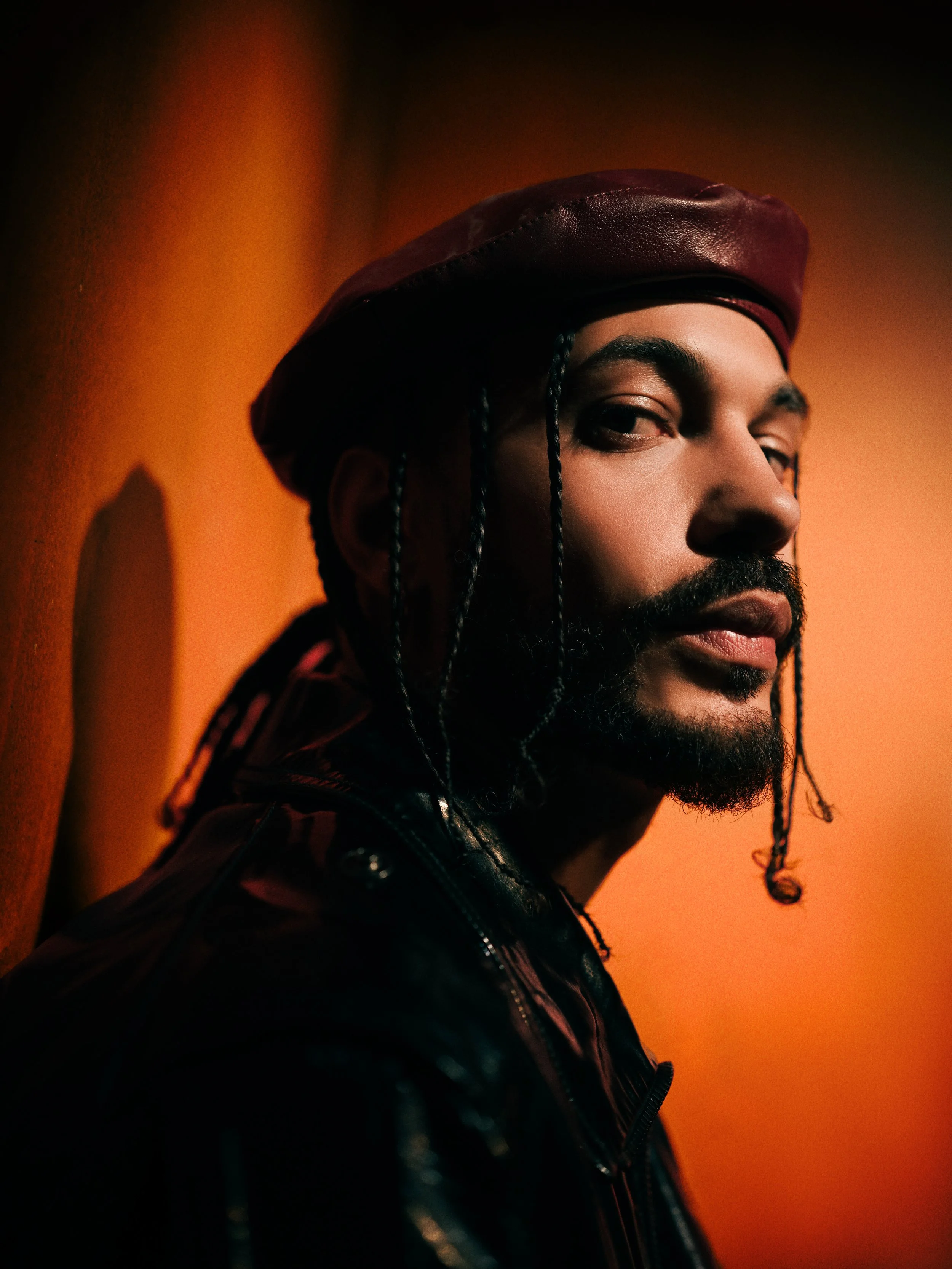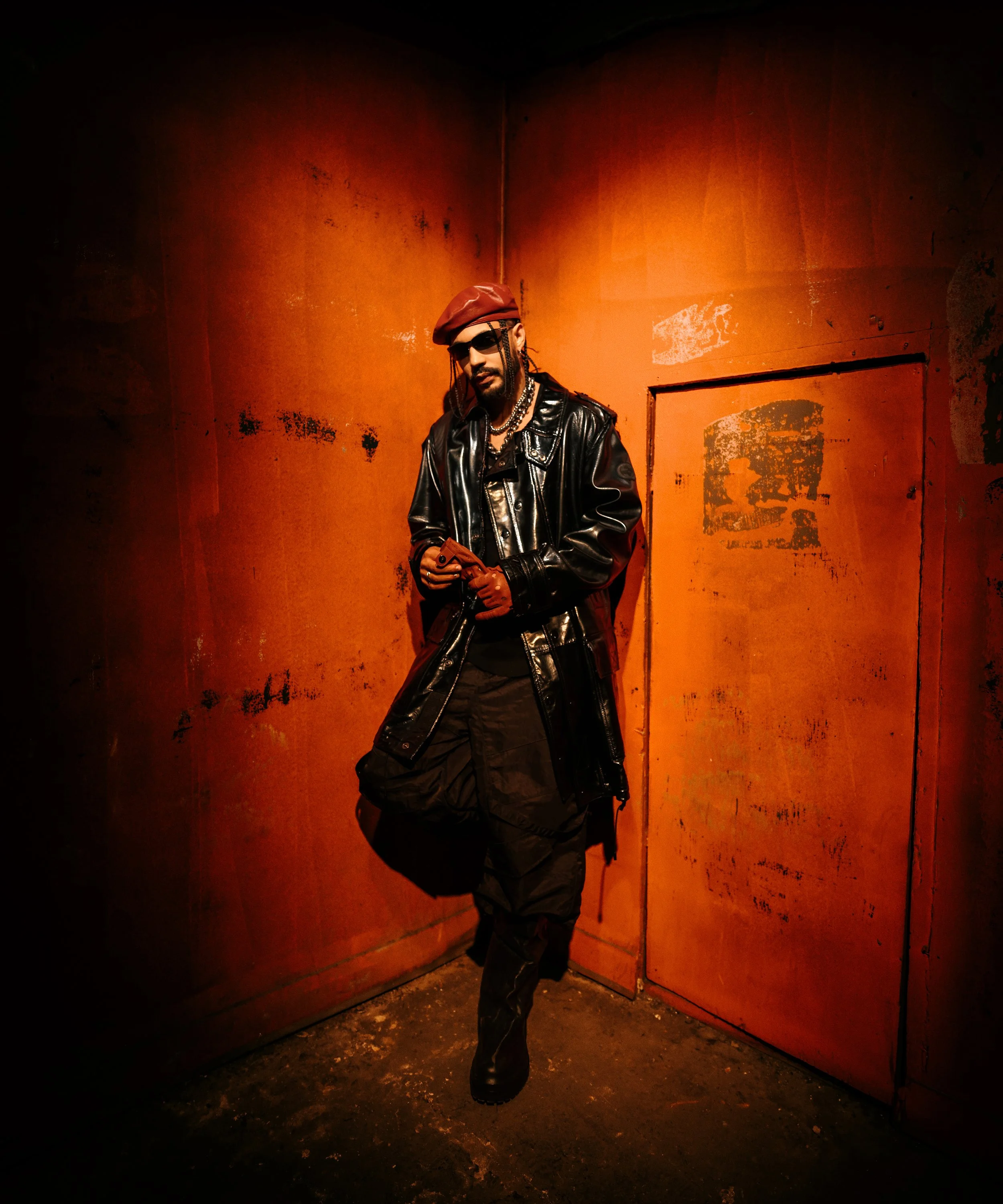
INTERVIEW: JUNE FREEDOM
Interview BY AMRIT KAMBO
June Freedom makes music that feels like sunlight on your skin - warm, golden, and deeply soothing. Raised in Cape Verde and now based between Los Angeles and Lisbon, the singer-songwriter has carved a lane that is both rooted, and borderless. His sound has resonated with audiences worldwide, amassing over 300 million streams and selling out shows across Europe and the U.S.
Following the success of his acclaimed albums Anchor Baby and 7 SEAS, June returns in 2025 with Casa Mira Mar, a deeply personal album that pays tribute to his grandfather’s store in Cape Verde. Featuring collaborators from across the diaspora, including Nana Fofie and Sabri, the project is a journey spanning continents, deep emotions and rich sounds. Whether performing on massive festival stages like Afro Nation, or intimate venues packed shoulder-to-shoulder, June brings warmth, presence, and intention.
We caught up with him in London; fresh from studio sessions and connecting with the community, to talk about the emotional core of Casa Mira Mar, the power of the diaspora, and why, no matter how global his sound gets, it always starts and ends with home.
Hi June Freedom! How are you feeling today?
I'm good! A little tired, but happy to be here. I’m feeling the good vibes of London! I love the community feel, I love the energy. And also, the work is in London - so much of the Afro diaspora is based here. I think I might come back for a few months to soak it all in for longer. I was with Kel-P yesterday, I’ve been doing a lot of sessions; so many people have reached out and I’m so lucky.
What kind of musical energy have you been tapping into while in London?
To start from the very beginning, I grew up in West Africa - Cape Verde. Traditional music from that region will always be my core. Because we’re a Lusophone country, there’s also a lot of Latin influence in our music. So there’s a global Latin/Afro feel to my sound, with touches of R&B which comes from my upbringing in the States, with a bunch of other influences mixed in.
There’s something really transportive about your sound - your music feels like a sunset, the smell of ocean air, sand between your toes.
You got it! My music feels like you’re on the beach - which is actually the name of the album, Casa Mira Mar, meaning "house with the ocean view."
Tell us more about the inspiration behind Casa Mira Mar.
My grandfather was one of the first merchants in Cape Verde to have a local store in the centre of the city, providing basic goods to the people. He named his store Casa Mira Mar because you could see the ocean and other islands from the window. Cape Verde is very decompressing, very beautiful, very calm. The US is chaotic, but I like the balance of both in my life. When I’m home, I’m on island time, and when I’m back in the US, it’s time to hustle.
How has your close-knit upbringing shaped how you navigate the fame you’re experiencing now?
I grew up in my mom’s restaurant; she’s had it since 2000. She always had live music there. So I grew up around amazing food and music - what’s better than that? What’s happening to me is so crazy, and I’m so grateful. But honestly, this is something I really and truly knew I was born to do from a young age. The live scene is the reason I do music. I love a live band, I love dancing, I love performing.
Your album includes powerful diasporic voices like Nana Fofie and Sabri. What do you think artists from the diaspora uniquely bring to the table?
The diaspora is so important in bringing culture to the forefront. For example, Afrobeats is having such a big moment because people from the diaspora are bringing it into new spaces. Remember Joanna? Around 8 years ago, it was the only Afrobeats song you’d hear in the club. Now, you can have an entire night of Afrobeats in any major Western city. London especially has always been slightly ahead of the curve compared to the US. With globalisation, there’s so much more culture being shared, and the diaspora is a massive part of that. There are so many different regions and sounds making waves globally, and that will only keep expanding. Even on my album, there’s representation from Ghana, Haiti, Portugal, and I love that combination. This album is the diaspora. There are so many textures, instruments, rhythms from all over the world, and I’m so proud of it.
Is there a track on the album you think people will have on repeat?
Wait! will be the one people dance to. The waistlines will be whining - I can tell they're defrosting now! Honestly though, I try to focus more on the album’s ebb and flow - how it feels as a whole, the content, and the storytelling; rather than pushing individual tracks. There’s something for everyone to gravitate toward, depending on their vibe.
What was the most challenging part of creating this project?
Yeah, this one was tough. I started making the album in Holland, then worked on it in LA - it was a very long process. A lot of trial and error, exploration, a lot of doubt. It started as an EP, then grew into an 8-song project, and eventually expanded to 12 tracks. I took my time with it, but I’m really proud of the final result. It feels like a true body of work - not just a bunch of singles. I’m so excited it’s out. I’m ready to party!
You sing in multiple languages - do certain emotions come more naturally in one than another?
Languages are interesting. I definitely turn to different ones for different emotions. The Latin languages are fiery and sexy. Creole has so many cadences and is a lot faster when spoken. It’s really interesting trying to put them all in the same song, because they’re so different. Usually, the beat or the story I’m telling will naturally call for the language it needs.
Do you notice any difference in how your music is received across different regions or countries?
My community at shows is a true reflection of where the music is reaching - across the diaspora. It’s always a very diverse crowd. People from all walks of life, ages 16 to 60, and from all kinds of backgrounds. That makes me so happy - to bring everyone together through music. I must say, Europe has streamed me the most, and I feel really blessed to have that community supporting me.
You had a huge moment in Portugal, performing with Cape Verdean legends - Nelson Freitas, Dino D’Santiago, Djodje, Elji Beatzkilla. Did you feel the weight of that moment in real time, or only after?
To be on stage performing with the legends I grew up listening to - and wanted to be like - was emotional. Seeing them opening my show and supporting me... it meant everything. As a kid, I wanted to sing like them, be friends with them, and it all came to pass. I felt it in the moment! Dancing with them, hugging, sharing that moment… and then feeling it all over again looking back at the pictures and videos. It was really special.
Have you ever performed for a crowd that just felt completely perfect?
London! Top 3 shows ever. It was sold out. It felt so cosy - everyone shoulder-to-shoulder, super personal. Everyone was sweating, singing, and the air was hot. I love bigger crowds too, but sometimes you lose that essence that small, intimate crowds have.
I also love festival crowds. I grew up doing festivals. From the age of 11, I was singing at big ones in Cape Verde. The country has festivals from Monday to Sunday, drawing up to 15,000 people sometimes. Bands always passed through our restaurant, and I’d end up singing with them, meeting more of my favourite acts. It all just grew from there. My mom is super proud of what I’ve achieved, but she always says, "When are you going to make the music you grew up listening to?" And I will. Home is where it started, and home is where it will end.
You’re the most streamed artist from Cape Verde. How does that sit with you?
It’s all relative, don’t you think? I feel extremely proud to have great numbers. But when it comes to cultural impact - what Cesária Évora did for my country, what Mayra Andrade did - those artists laid the foundation in the ‘80s and ‘90s. That kind of legacy goes beyond streaming stats. I can only dream of having that level of importance. Still, I’m really proud of all that’s happened in the past three years. We’ve only just started, and we’re going to keep going!




